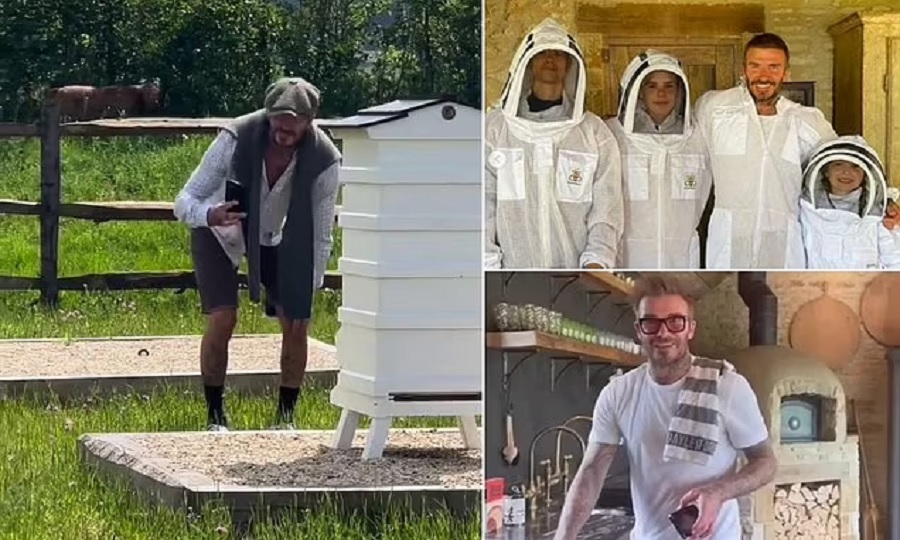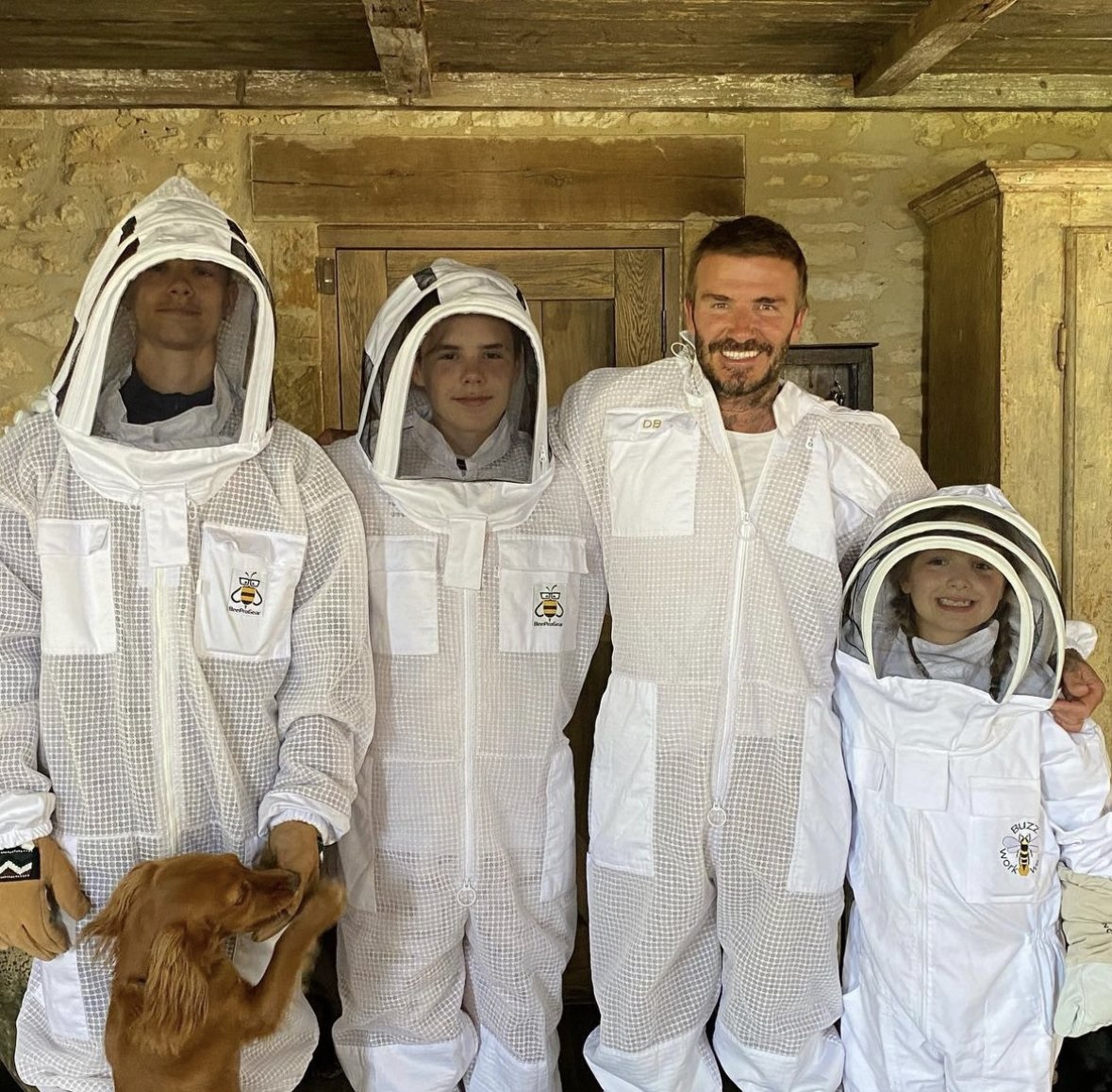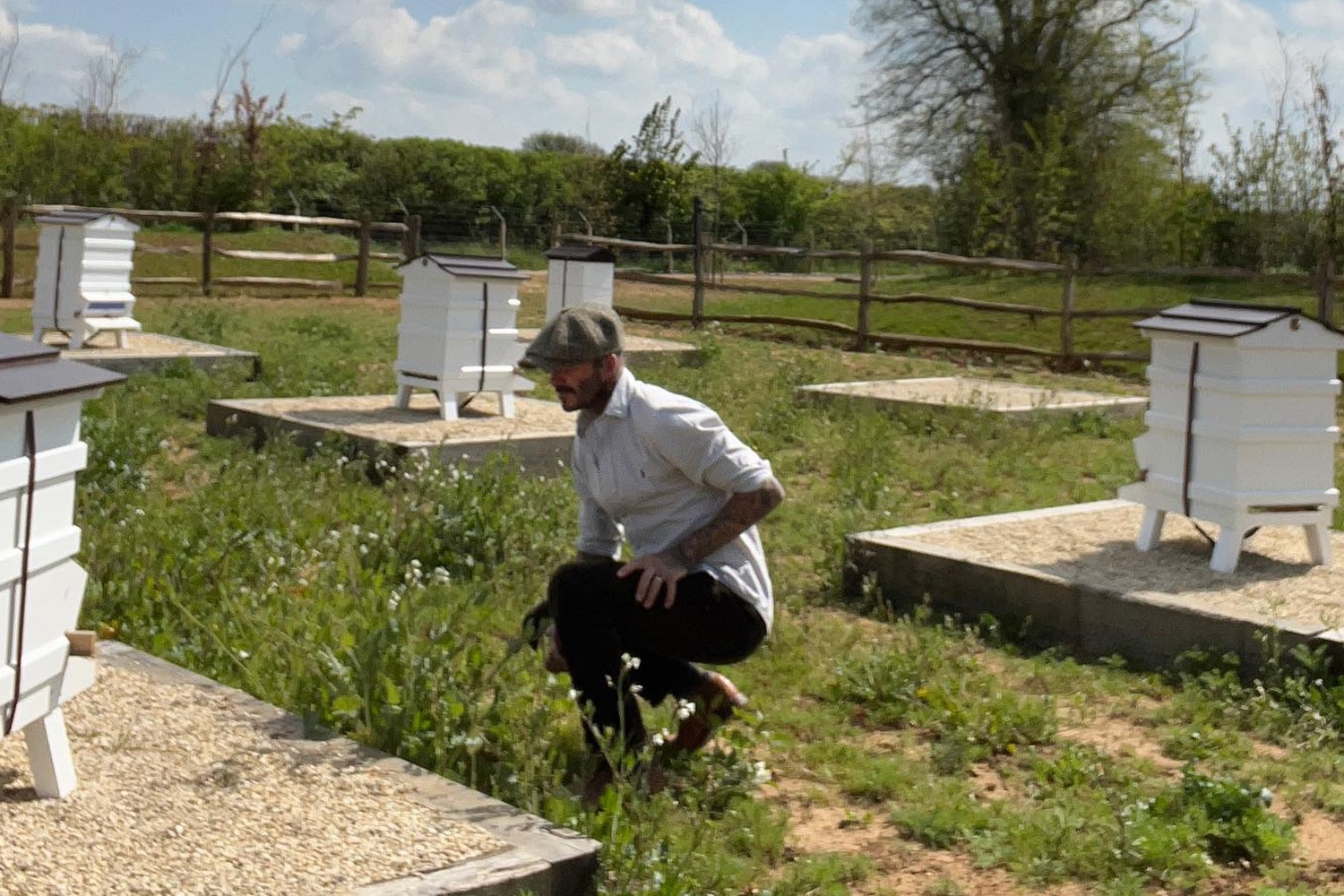CELEBRITY
David Beckham is accused of placing high voltage electric fence and beehives on boundary of his stunning £12m Cotswolds country mansion to keep away nosey ramblers who peer over his fence

David Beckham has been accused of placing beehives on the boundary of his £12million country mansion – in a ‘buzz off’ message to nosey snoopers.
Furious locals fear they could come under attack from swarming insects after the former England captain installed two new hives next to a public footpath near his home in Oxfordshire.
Neighbours say the positioning of the structures defies public safety advice – but could provide a nasty sting in the tail for gawking passers-by.
The new hives are said to be 500 yards from the group of nine existing beehives Beckham has kept on the other side of his land since 2021.
The former Manchester United and Real Madrid star developed a passion for the hobby during lockdown and last month told how he had compared ‘beekeeping tips’ with King Charles during a visit to the monarch’s Highgrove home.
But one local said of the latest development: ‘It feels like a pretty strange thing to do.
‘It feels like he’s trying to get people to avoid the footpath. Otherwise, why put them so close to the footpath when he has at least two very large fields to the north and south of the house to put them on?’
It is not the first time Beckham, 49, has had a run in with neighbours since moving into the Cotswolds bolthole with former pop star wife Victoria and their four children in 2017.
Last year the A-list couple were accused of trying to build a road across a public footpath in order to construct a greenhouse on their estate.
They had previously come under fire over plans to create a huge lake in the grounds of the country pile.
The Beckhams are said to have become frustrated by the ‘constant rubber-necking’ of locals, ramblers and guests at the nearby Soho Farmhouse private members’ country club taking long walks.
They are said to have gone to great lengths to grow trees and re-landscape the earth to block the view from the public footpath to the Grade II listed barn conversion.
The family have spent tens of thousands of pounds doing up the property which has a sauna, safari tent and football pitch.
The entire estate and all its buildings used to be visible when it was first built but now, especially in summertime, it has become largely hidden.
The neighbour, who asked not to be named, said: ‘It’s funny really because they seem to think locals spend their whole time obsessing about what they get up to.
‘We really don’t. We couldn’t care less. It smacks of massive self-importance.
‘The Beckhams are the epitome of the DFLs (Down From London) crowd which has completely taken over this area.
The new hives recently appeared more than 330 yards from the family’s home.
They are just feet away from a public footpath running along the western reaches of the property.
According to Allergy UK, there are many species of bees in Britain but only the honeybee commonly stings – and it is usually ‘beekeepers, their family or neighbours who get stung’.
The reaction most people experience after a wasp or bee sting is ‘pain, discomfort and redness around the sting site, with swelling that may increase over a few hours’.
However, there are some people who may develop life threatening allergic reactions, called ‘anaphylaxis’.
There are approximately ten reported deaths from wasp or bee sting reactions every year.
Beehives are usually kept in special areas known as apiaries.
Beekeeping experts specifically warn owners not to keep hives near public footpaths in case the bees attack unwitting passers-by.
The British Beekeepers Association advises: ‘Avoid placing hives facing onto a neighbour’s property or near a public footpath.’
The National Allotment Society, whose patron is King Charles, also advises that hives ‘are best sited away from other plot holders, paths and public roads.’
The organisation adds that bees ‘should also be encouraged to fly over high hedges, fences or two metre screens around the hives; especially if their flight path crosses a footpath’.
The society also states that the beep’s contact details must be displayed on site.
It adds: “If someone on your site is allergic to bees, please do discuss your plans with them first and take their medical needs into account.”
Rural ecology experts Halpin Robbins, of Taunton, Somerset, are even clearer on the issue of public safety.
They tell beekeepers: ‘Each person is different and reacts in a different way to bees; some people like them, some indifferent, some against them and some have allergic reactions if stung.
‘Ideally an apiary should be sited an appropriate distance seven to eight metres away from the nearest footpath or similar area with a barrier (fence, wall or hedge) between the hives and the public.
Beckham went on to reveal his friendship with King Charles flourished due to their mutual love of beekeeping after he was named a King’s Foundation ambassador.
He said: ‘It was inspiring to hear from the King about the work of His Majesty’s foundation during my recent visit to Highgrove Gardens – and compare beekeeping tips.’
On World Bee Day last year, Beckham uploaded an Instagram video showing him working on a beehive.
In another post, he is pictured next to a hive with a caption saying: ‘Be kind and they will be calm.’













